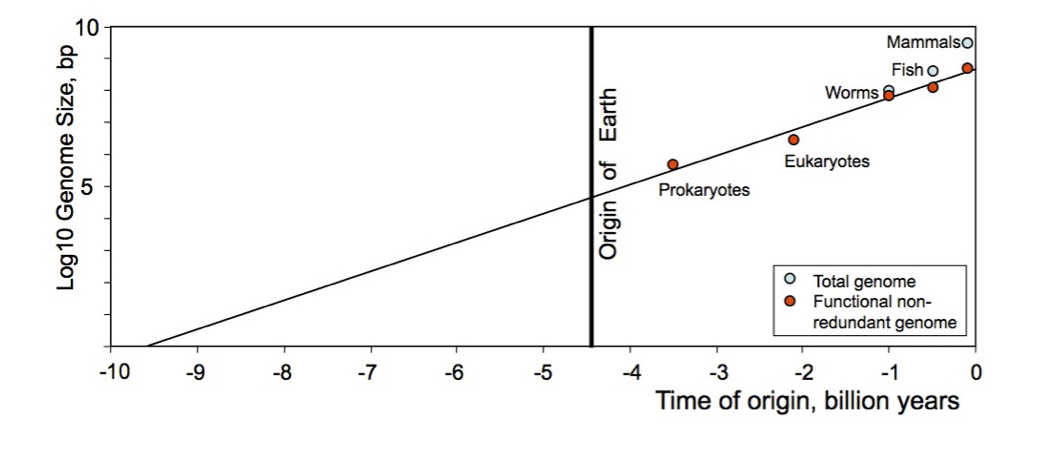/Blog/Carls-Blog/Perspectives/Could-a-Chimpanzee-Have-a-More-Up-to-Date-Mental-Model-of-the-World-Than-You/?link=1&fldKeywords=&fldAuthor=&fldTopic=0

Do you think you could outperform a chimpanzee on a 13 question multiple choice test on general knowledge of the world?
Of course you think you could!
But would you believe me if I told you it's very likely you'll perform worse than the average chimpanzee? And would you believe me if I told you the more educated and more knowledgeable you are about the world, the less likely you'll beat the chimps?
Of course you wouldn't!
The sad truth is, however, it's been repeatedly shown that humans – especially well educated and "world knowledgeable" ones – perform worse than chimps on a certain test that measures general knowledge about the world.
Try it for yourself. Here's a link to the test. The correct answers are found immediately after the test.
Hans Rosling, a well known, recently deceased medical doctor from Sweden has administered the test to groups all over Europe, North America, and other economically advanced parts of the world. He's reported that human test-takers consistently underperform chimpanzees!
Now I don't know that he ever actually gave the 13 question test to any chimpanzees, but if he had, the chimpanzees probably would have randomly pressed the answer buttons and gotten about 33.3% of the answers correct. That's exactly what you'd expect if you were presented with a multiple choice test on a topic about which you knew absolutely nothing.
Still skeptical? Rosling broke his results out by country. Here are the results, by question, for Americans who have taken the test:
Question 1: 10%
Question 2: 36%
Question 3: 5%
Question 4: 43%
Question 5: 10%
Question 6: 36%
Question 7: 11%
Question 8: 30%
Question 9: 17%
Question 10: 27%
Question 11: 12%
Question 12: 27%
Question 13: 81%
Average for USA Participants: 28.75%
Expected Chimpanzee Score: 33.33%
Now this is not another one of those examples of standardized tests given to students around the world, ostensibly to decry the sad state of American education. No, these were scores for adults; and it wasn't a case that other countries outperformed the USA in a meaningful way. No, test takers in every "advanced" country did badly!
So how could people perform worse than 33.33% - the expected random outcome? Moreover, how could they perform worse than that if they really do know something about the subject matter (and the human test takers typically knew something about the subject)?
Rosling's answer was that the human test takers performed so poorly because they had outdated mental models of what the rest of the world actually looks like today. That's the core of his book Factfulness.
It sounds like really bad news, but it's actually a "good news" story: the real point of the book is that the part of the world most of us think about as "developing" is really much farther along than we thought. The reason well educated people score poorly on his 13 question test is, according to Rosling, because we're running around with very out of date mental models of the rest of the world.
Rosling's good news is that humankind has made tremendous progress in eliminating disease and deep poverty. Not only that, but the levels of education received by children in the developing world – particular young girls – is far higher than the average person ever realized. It's ultimately a very positive story.
The only thing that isn't positive is that most of us in the more developed part of the world still have these out of date mental models.
An excellent example is our tendency to think of the world as being either "developed" or "under-developed". Instead, he says we should divide countries into four categories – Levels 1 through 4 – defined in terms of how much the average person earns in a day. At Level 1, the typical person earns $ 1.00/day. There are still some places like that in the world. On Level 2, the average person earns $ 4.00/day. For Level 3 it's $ 16.00/day, and for Level 4, it's $ 64.00/day. Today, according to Rosling, the majority of the world is somewhere in the middle – Levels 2 and 3 – moving upward very rapidly towards Level 4 where you find the "advanced" world. In short, our mental model of "two levels" – developed and under-developed - is very much out of date.
So if that's the case, why is that we tend to have such out of date views about the world beyond North America, Europe, Australia, and Japan? A key reason is because the advancement in the "developing" world has happened so quickly. A second reason is because many advanced countries have, themselves, only recently become wealthy themselves.
Rosling offers the example of his grandparents and parents, all of whom grew up in Sweden, as did he. We have the mental image today of Sweden as an advanced, wealthy country, with very modern day attitudes about social matters, but Sweden is actually a pretty recent arrival. Rosling describes his grandparents as having lived at a level comparable to where many African countries are today – Level 2 or Level 3.
He draws two conclusions from this: 1) countries such as his have developed very rapidly over the past two generations; and 2) countries we think of today as being backward – think much of Africa – will likely be at the level Sweden is at today in a generation or two. In other words, much of Africa and Asia in 2065 will look very much like Western Europe, the USA, Canada, and Japan look today – members of the Level 4 club.
The obvious question is, why do so many of us in the "developed" world then hold very out of date ideas of the state of the rest of the world? An obvious answer is the media, but Rosling would say that's much too simple an answer. Instead, he examines the approach we take to analyzing problems … and finds many of them wanting. Much of Factfulness is a refresher course in critical thinking and reasoning.
At the same time, Rosling points out our very human tendency to look for simple explanations and solutions. Unfortunately, he doesn't tend to find them, but when he does, it's probably not the answer you want to hear. As an example, he notes, "most countries that make great economic and social progress are not democracies. South Korea moved from Level 1 to Level 3 faster than any country has ever done (without finding oil), all the time as a military dictatorship. Of the ten countries with the fastest economic growth in 2016, nine of them score low on democracy."
So much for pushing liberal democracy on the rest of the world! Well, I don't believe Rosling would conclude that we should become friends with military dictators, even though some believe that's a good idea, but that's the conclusion one might reach with "one parameter" thinking. Instead, as Rosling points out, "there is no single measure – not GDP per capita, not child mortality (as in Cuba), not individual freedom (as in the United States), not even democracy – whose improvement will guarantee improvements in all the others. There is no single indicator which we can measure the progress of a nation. Reality is just more complicated than that."
Rosling, I think, provides a very useful perspective on things. Unfortunately, I just don't envision things changing a great deal, meaning that if someone gives an updated version of his 13 question test in 2043 – 25 years from now - the results will be materially different than what's presented in the book. In other words, I'll bet test takers in the year 2043 may still do worse than the chimpanzees!
That's not because the chimpanzees will get meaningfully better at test taking – it will still be "random pulls of the lever" for them. It will because we humans probably won't be any more careful in our thinking – in being "factful" – than we are today. It isn't because we aren't capable of this, we certainly are. Rather, it will be because it isn't a priority for most of us.
After all, how many people do you know who spend much time worrying about what's going on in the rest of the world? How many apply critical thinking skills to analyzing complex problems? Frankly, not many of us. It isn't because we aren't capable of doing this, it's because we've probably got better ways to spend our time. One of Rosling's recommendations is to look at an issue from different perspectives. Great idea! How many people, though, take time to do that? One of the goals of "The Unexpected Perspective" is to encourage people to do just that – to look at issues from multiple perspectives. If you're reading this, most likely you're one of those people who believe in the same idea. Sadly, we don't have a lot of company!
The reason we don't have a lot of company is simply that most people are already busy and don't want to take extra time to delve into a particular subject. I understand. No doubt, there are at least a dozen different topics you and I might consider, but we don't because it simply isn't important enough to do that.
Instead, we rely upon the usual range of ways to form opinions about various subjects beyond our view. For example, we tune into our favorite TV network, or website, to get our news. For some of us, that's CNN, for others it's Fox, and for still others it's "The Daily Show" on Comedy Central.
We're not suddenly going to change the way we think about things, but there are several practical things to do. First, Rosling's ideas can and should be taught in schools. Actually, the concept of critical thinking already is taught in school. What Rosling proposed is really just a variation of critical thinking.
Second, those of us who are adults in the working world should try to make a point to practice the ideas Rosling espouses. Of course, we should all also get daily exercise and be more careful about our French Fry consumption. Well, you already know how likely that is to change.
Sadly, we will likely continue to underperform the chimpanzees because so many of these ideas we have of the rest of the world are so deeply ingrained. Yes, over time perceptions will catch up with reality, but it will likely take a very long time. In the meantime, the underlying reality will probably change – so our ideas will change, but we'll still underperform the chimps because the underlying reality will have changed.
There is one possible way for Rosling's ideas to gain sudden traction. That would be if we have another "Sputnik moment". This refers to the shock the USA, Canada, and Europe experienced in 1957 when the Soviet Union launched the first satellite into orbit. It was a tremendous shock … and it forced people to re-conceptualize many things about their mental model of the world. The launch of Sputnik dramatically changed how many people thought about the world. As a result, many things suddenly changed in the USA.
While there's a good chance the ideas Rosling espouses in Factfulness will not be widely adopted, what he has to say is definitely worthwhile to consider. I very much encourage you to read it … and overlook the fact that the more educated and informed you are, the more likely it is that that chimpanzee is going to out-perform you.





